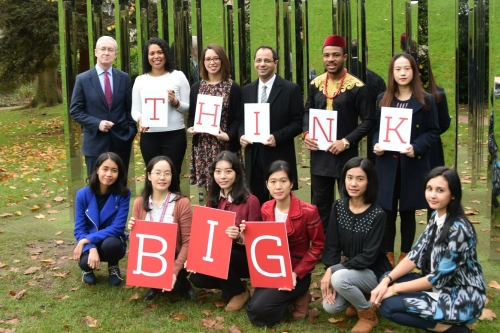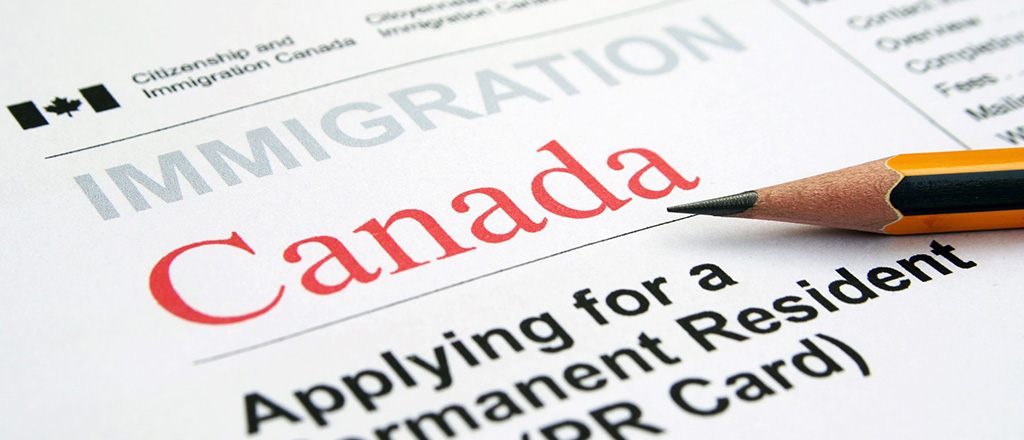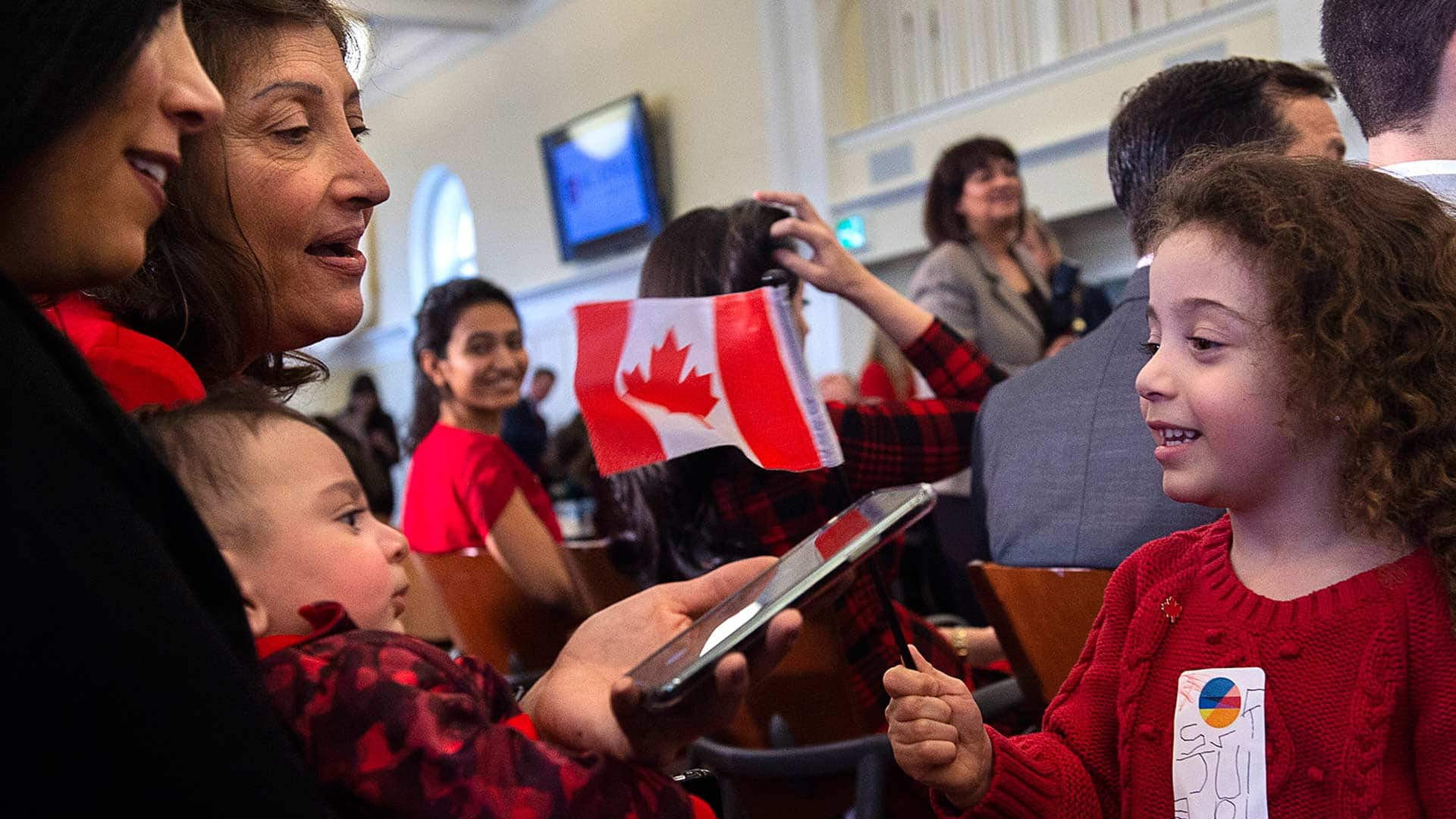UK Student Visa Application Guidelines: How To Migrate to UK For Masters as an International Student (Fees, Admission and Visa Requirements)
For students looking to study in the UK, the process of applying for a student visa can be complex and challenging. UK Student Visa Application is a complex process that requires careful planning and attention to detail. Students must meet a range of requirements, including academic qualifications, English language proficiency, financial resources, and health checks. In addition, they must provide supporting documents and attend a visa interview. The stakes are high, as a successful visa application is critical for students to gain entry to the UK and pursue their academic goals. In this context, understanding the UK Student Visa Application process and requirements is essential for any student considering studying in the UK.
Documents Required For University Admission In UK For International Students
1. Degree certificate
2. Degree Transcript
3. Passport
4. Academic reference letter. (From any of your lecturers)
5. Professional reference. (From your workplace)
6. WAEC certificate or IELTS
7. CV
UK Universities Admission Requirements For International Students
Admission requirements for international students vary depending on the university and the course they are applying for in the UK. However, some general guidelines can be useful to keep in mind.
- Choose universities and courses: Start by researching universities and courses that interest you. Look at the admission requirements for international students, the application process, tuition fees, and scholarship opportunities.
- Check language requirements: English language proficiency is essential for admission to most universities in the UK. International students whose first language is not English will need to take an English language test, such as IELTS or TOEFL, and achieve the minimum score required by the university.
- Check entry requirements: Most universities in the UK require international students to have completed 12 years of education, including secondary school, and have good grades in their academic subjects. Some courses may have specific subject requirements, so it’s important to check these before applying.
- Apply early: International students should apply as early as possible to ensure they have enough time to complete the application process, apply for visas, and make travel arrangements.
- Pay attention to deadlines: Each university sets its own deadlines for admission and scholarship applications, so it’s important to check these carefully and ensure you submit your application before the deadline.
- Prepare your documents: International students will need to provide a range of documents as part of their application, including academic transcripts, English language test scores, a personal statement, and references. Make sure you have these ready in advance and that they meet the requirements of the university.
- Apply for a student visa: International students will need a student visa to study in the UK. You should apply for this as soon as possible after receiving your offer of admission from the university.
How To Choose a School or University of Study in the UK as an International Student
Start your search for admission by applying to several Universities but you need to consider the following factors.
1. The Course you want to study.
2. The location of the school. (Inside London or Outside London)
3. The review of the school.
4. Your account balance.
5. The school’s Payment plan. (Very important maka depression).
So, I advise you to consider the schools that are cheap with good reviews. On average, go for schools with tuition fees between £13,000 to £17,000.
List of UK Universities that accept third class and HND certificates for masters
List of UK universities that doesn’t require IELTS for admission
List of Cheap Universities in UK for International Students
A few schools may allow you to pay less deposit BUT be ready to pay 50% of the balance before enrollment. Let me explain this if your tuition is £15,000 and the school asks you to pay a deposit of £5000. Please make a provision for 50% of the balance because they must ask for it before your enrollment.
Some of the schools may require you to provide proof of funds before they issue you a CAS (Confirmation of Acceptance of Studies).
Before you apply for a visa, ensure you have the needed funds in your account for the last 28 days.
Proof of funds means showing the account statement showing the total of your tuition fee balance and your living expenses. In essence, they want to be sure that you have the required funds that will see you through.
For example: For a school with Total tuition fees of £15,000 that asked you to pay a tuition deposit of £5000. This implies that you should show £10,000 (Balance) + £9207(Living expenses) = £19,207 or its equivalent in your account.
Note: UKVI always uses oanda rate to calculate our POFs. Assuming Oanda rate is N560 for £1, it is always advised that you use something N600 against £1 in case of fluctuation.
£19,207 X 600 = N11,524,200
So if you’re using a Nigerian account, you’ll need to show roughly 12 million naira in your account and funds must have been held for at least 28 days before presenting it to the school or for visa application. This is where somebody like got discouraged a few years ago. Please don’t get discouraged like I was but instead ask for a way out of this hurdle.
UK Student Visa Application Fees and Costs For a 1-yr Graduate/Masters Program
1. Insurance Health Surcharge (IHS) = £709 for one year program
2. Visa application fee -£363 ($418)
3. Tuberculosis Test – N57,800
How much does a UK Student visa cost?
The cost of a UK student visa depends on various factors, including your country of origin, the length of your course, and whether you apply from inside or outside the UK. As of 2021, the cost for a Tier 4 (General) student visa is:
- £348 for a visa to study for up to 6 months
- £475 for a visa to study for up to 11 months
- £536 for a visa to study for more than 11 months
- £97 for the healthcare surcharge, which gives you access to the National Health Service (NHS) during your stay
You may also have to pay an additional fee if you use the priority or super-priority service to expedite your visa application. Please note that visa fees are subject to change, so it’s always a good idea to check the most up-to-date information on the UK government’s website.
UK Students’ Visa Application Requirement.
1. CAS reference number
2. Degree certificate
3. WAEC result /IELTS
4. TB test certificate
5. Bank Statement.
6. Reference letter from employer.
7. Employment letter
What is the requirements for Student visa in UK?
To obtain a UK student visa, you will need to meet certain requirements:
- Acceptance to a UK university: You must have a confirmed place to study at a UK university or college that is listed as a licensed Tier 4 Sponsor.
- Proof of funds: You must be able to demonstrate that you have enough money to cover your tuition fees and living expenses during your stay in the UK. You can do this by providing bank statements, a letter from a financial sponsor, or other evidence of financial support.
- English language proficiency: You must demonstrate your proficiency in English by passing a recognized English language test, such as the IELTS, TOEFL, or Pearson Test of English.
- Tuberculosis Test: Depending on your country of origin, you may be required to undergo a tuberculosis test as part of your visa application.
- Biometric information: You will need to provide biometric information (fingerprints and a photograph) as part of your visa application.
- Visa application form: You will need to complete the online visa application form and pay the relevant fees.
Breakdown of The Whole UK Student Visa Application Process
1. Make a firm decision about the School you want.
2. Apply for admission.
3. Receive your offer letter.
4. Pay the tuition deposit.
5. Get your CAS
6. Prepare your Bank statement showing the funds as explained earlier (Proof of funds)
7. Apply for a Tuberculosis test and get your TB test certificate
8. Apply for your visa.
8. Get your Biometrics done at any TLS centre.
9. Receive your visa approval.
10. Book your flight and migrate in peace.
12. Settle down in UK and begin your studies.
UK Student Visa Application Steps
Here are the general steps for applying for a UK student visa:
- Choose your course and institution: You must first choose the course you want to study and the institution you want to attend. Ensure that your chosen institution is approved by the UK government as a Tier 4 Sponsor.
- Check the visa requirements: Check the UK government website to determine the type of visa you need to apply for, and what documents you need to submit with your application.
- Apply for the course: Once you have chosen your course and institution, you need to apply to the institution directly. You will need to provide evidence of your qualifications, English language proficiency, and other required documents.
- Receive Confirmation of Acceptance for Studies (CAS): Once your application has been accepted, the institution will issue you a CAS number. This is a unique reference number that you will need to include in your visa application.
- Complete the online application form: You must complete an online UK student visa application form, pay the visa fee and schedule an appointment at a visa application center.
- Attend your appointment: You will need to attend an appointment at a visa application center, where you will provide your biometric data (fingerprints and a photograph) and submit your application and supporting documents.
- Wait for approval: Once your application has been submitted, you will need to wait for a decision. The processing time varies depending on where you apply from.
- Receive your visa: If your application is approved, you will receive your visa either in the form of a sticker in your passport or an electronic visa.
My Pre-Arrival Advice for International Students in the UK.
1. Before you travel to the UK, ensure you have made serious plans for your accommodation unless you have enough funds to stay in a hotel or Airbnb for the first few weeks.
2. Ensure you have funds set aside for your house rent, feeding, and transportation at least for the first 3months.
3. Carry it at the back of your mind that you can’t work more than 20hrs a week unless you want to sacrifice your chances of landing a postgraduate visa.
4. As you plan to travel, get ready to unlearn a lot of things especially that our miracle mentality because For you to get anything done, you must put in all the right work.
Congratulations and Goodluck to all of you.
Is UK Student visa easy to get?
Obtaining a UK student visa can be a straightforward process if you meet all the requirements and provide the necessary documentation. However, it’s important to note that the UK government has strict rules and regulations in place to ensure that only genuine students are granted visas. Therefore, the application process may be more complex and time-consuming than you initially anticipated.
To improve your chances of getting a UK student visa, you should ensure that you have all the required documents in order, such as your acceptance letter from a UK university or college, proof of funds, and evidence of English language proficiency. You should also be prepared to answer any questions about your study plans and intentions in the UK during your visa interview.
Ultimately, whether or not the UK student visa is easy to get will depend on your individual circumstances and how well you meet the visa requirements.
How long does the UK Student visa take?
The processing time for a UK student visa can vary depending on a number of factors, such as your country of origin and the volume of applications being processed at the time. As of 2021, the UK government’s standard processing time for a Tier 4 (General) student visa application is up to 8 weeks.
However, if you use the priority or super-priority service, you can get a decision on your visa application within a shorter period. The priority service costs an additional £220 and aims to process your application within 5 working days, while the super-priority service costs an additional £956 and aims to process your application within 24 hours.
These processing times are guidelines, and your application may take longer if additional information is required or if there are complications in your case. Therefore, it’s always a good idea to apply for your UK student visa well in advance of your intended travel date.
How much is Student visa from Nigeria to UK?
The cost of a Tier 4 (General) UK student visa for Nigerian citizens is:
- £348 for a visa to study for up to 6 months
- £475 for a visa to study for up to 11 months
- £536 for a visa to study for more than 11 months
- £97 for the healthcare surcharge, which gives you access to the National Health Service (NHS) during your stay
You may also have to pay an additional fee if you use the priority or super-priority service to expedite your visa application.
Visa fees are subject to change, so it’s always a good idea to check the most up-to-date information on the UK government’s website. Additionally, you may also need to factor in the cost of other expenses such as flights, accommodation, and living expenses while you are in the UK.
How much is UK visa fee in Nigeria?
The UK visa fees for Nigerian citizens vary depending on the type of visa you are applying for and the duration of your intended stay. Some of the visa fees for Nigerian citizens are as follows:
- Standard Visitor visa (6 months) – £95
- Standard Visitor visa (2 years) – £361
- Standard Visitor visa (5 years) – £655
- Standard Visitor visa (10 years) – £822
- Tier 4 (General) student visa – £348 for a visa to study for up to 6 months, £475 for a visa to study for up to 11 months, and £536 for a visa to study for more than 11 months.
- Family visa – £1,523 for a spouse, partner, or family member visa.
These fees are subject to change at any time, so it’s important to check the most up-to-date information on the UK government’s website before you submit your application.
How much bank balance is required for UK student visa?
The amount of money you need to show in your bank account for a UK student visa depends on your individual circumstances and the length of your course. Generally, you’ll need to provide evidence that you have enough money to cover your tuition fees and living expenses while you’re in the UK.
The UK government’s guidance on the amount of money you need to show in your bank account is:
- £1,334 per month for living costs if you’re studying in London
- £1,023 per month for living costs if you’re studying outside London
- The full cost of your course fees for the first year or the entire course, whichever is shorter
In addition to showing that you have enough money to cover your tuition fees and living expenses, you’ll also need to provide evidence that your funds have been in your account for at least 28 consecutive days before you apply for your visa. This requirement may be waived if you are sponsored by your government, an international organization, or a university.
How much is proof of funds for UK student visa?
The amount of money that you need to show as proof of funds for a UK student visa varies depending on your individual circumstances and the length of your course. The UK government’s guidance on the amount of money you need to show in your bank account for a Tier 4 (General) student visa is:
- £1,334 per month for living costs if you’re studying in London
- £1,023 per month for living costs if you’re studying outside London
- The full cost of your course fees for the first year or the entire course, whichever is shorter
For example, if you are studying in London for a 9-month course and your tuition fee for the first year is £12,000, you would need to show proof of funds of £16,323 (£1,334 x 9 months + £12,000).
You must show that the required amount of funds has been held in your account for a minimum period of 28 consecutive days, ending no more than 31 days before the date of your visa application.
Is interview required for UK visa?
Whether or not you are required to attend an interview for a UK visa depends on a variety of factors, including your nationality, the type of visa you are applying for, and your individual circumstances.
In general, most applicants for UK visas do not need to attend an interview, as the UK Visas and Immigration (UKVI) typically decides whether to grant a visa based on the information provided in the application and any supporting documents. However, in some cases, UKVI may request an interview as part of the application process, particularly if there are any questions or concerns about the application or if additional information is needed.
If an interview is required, you will be notified by the UKVI and provided with instructions on how to schedule the interview. The interview may take place in person at a UK embassy or consulate, or it may be conducted remotely via video conferencing.
Note that even if an interview is not required, you may be asked to attend a biometric appointment to provide your fingerprints and a digital photograph as part of the application process.
Is bank statement enough for UK Student visa?
Providing a bank statement can be an important part of the application process for a UK student visa, as it serves as proof that you have the necessary funds to cover your tuition fees and living expenses during your stay in the UK. However, a bank statement alone may not be enough to satisfy the UK Visas and Immigration (UKVI) that you meet all the requirements for a student visa.
In addition to a bank statement, you will also need to provide other supporting documents, such as an acceptance letter from your university, evidence of your English language proficiency, and any other relevant documents related to your course of study. You may also be required to attend an interview or biometric appointment, depending on your individual circumstances.
Who can sponsor me to study in UK?
If you are planning to study in the UK, there are several types of sponsors who may be able to provide financial support or other forms of sponsorship to help you with your studies. Some of the most common sponsors include:
- Family members: If you have family members in the UK who are willing and able to provide financial support, they may be able to sponsor you. They will need to provide evidence of their relationship to you and proof of their financial capacity.
- Educational institutions: Many universities and colleges in the UK offer scholarships, bursaries, and other forms of financial aid to international students. You should check with your chosen institution to see what options are available.
- Governments or international organizations: If you are sponsored by your government or an international organization, they may be able to provide financial support for your studies in the UK.
- Private organizations or individuals: There are a number of private organizations and individuals who offer scholarships or other forms of financial assistance to international students. You can search online for scholarship opportunities, or check with your chosen institution to see if they have any recommendations.
Your sponsors will need to provide evidence of their financial capacity and their relationship to you, and you will need to provide evidence that you meet all of the requirements for a student visa. If you have any questions about sponsorship or the student visa application process, it’s a good idea to seek advice from a qualified immigration advisor or solicitor.
How many months bank statement is needed for UK visa application?
If you are applying for a UK visa, the amount of time you will need to cover with your bank statement will depend on the length of your intended stay in the UK and your individual circumstances.
As a general rule, you will typically be required to provide bank statements covering a period of at least six months. This should show that you have sufficient funds to cover your living expenses and tuition fees during your stay in the UK.
However, if you are staying in the UK for a longer period of time, you may need to provide bank statements covering a longer period, such as 12 months or more. The exact requirements can vary depending on the type of visa you are applying for and your individual circumstances, so it’s important to check the specific requirements for your visa application before submitting your documents.
In addition to bank statements, you may also be required to provide other supporting documents, such as proof of income, evidence of your relationship with your sponsor (if applicable), and any other relevant financial documentation. It’s important to ensure that all of your documents are up-to-date, accurate, and in compliance with the UKVI’s guidelines.
How to apply for UK study visa from Nigeria?
If you are a Nigerian citizen and you want to apply for a UK study visa, you can follow these steps:
- Choose a university and a course: Before applying for a UK study visa, you need to choose a university and a course that you want to study. You should check the eligibility criteria and requirements of the university and the course.
- Check your eligibility: After choosing the university and the course, you need to check your eligibility for the visa. You must meet the UKVI’s requirements for a student visa, including English language proficiency and financial requirements.
- Create an account: You need to create an account on the UKVI website and fill out the online application form.
- Pay the visa fee: You need to pay the visa application fee online. The fee can vary depending on the type of visa you are applying for.
- Book an appointment: After paying the visa fee, you need to book an appointment at a visa application center to submit your documents, biometrics, and attend an interview (if required).
- Prepare your documents: You need to prepare your documents, including your passport, academic certificates, bank statements, English language proficiency certificate, and an acceptance letter from the university.
- Attend the appointment: You need to attend the appointment at the visa application center to submit your documents and biometrics.
- Wait for the decision: After submitting your application, you need to wait for the UKVI to process your application. You can track the status of your application online.
How much money is required to study in UK?
The amount of money required to study in the UK can vary depending on a number of factors, including the type of course you plan to study, the duration of your studies, and the city you will be living in. However, there are some general costs that you should be aware of:
- Tuition fees: Tuition fees for UK universities vary depending on the course and the institution. On average, international students can expect to pay between £10,000 and £30,000 per year.
- Accommodation: The cost of accommodation can also vary depending on the location and type of accommodation you choose. On average, international students can expect to pay between £150 and £300 per week for accommodation.
- Living expenses: The cost of living in the UK can also vary depending on the location and your lifestyle. On average, international students can expect to spend around £800 to £1,200 per month on living expenses, including food, transportation, and other expenses.
- Health insurance: International students are required to have health insurance while studying in the UK. The cost of health insurance can vary depending on the type of coverage you choose.
- Travel expenses: You will also need to budget for travel expenses, including flights to and from the UK and any travel within the UK.
In addition to these costs, you may also be required to pay for additional expenses such as textbooks, course materials, and any additional fees associated with your course. It’s important to budget carefully and plan ahead to ensure that you have enough money to cover all of your expenses while studying in the UK.
What is the maximum age limit for UK student visa?
There is no maximum age limit for a UK student visa. However, if you are under 18 years old, you will need to have written consent from your parents or legal guardian and have arranged for suitable accommodation and care while in the UK.
As long as you meet the eligibility requirements for a student visa, including the English language proficiency and financial requirements, you can apply for a UK student visa regardless of your age. However, it’s important to note that some universities may have their own age limits or requirements for admission, so you should check with the specific institution before applying.
Can I bring my family to UK on student visa?
If you are a student who is studying a full-time course at a UK university, you may be able to bring your family members to the UK with you. However, the rules for bringing family members on a student visa depend on your individual circumstances.
Spouses or partners: If you are a married or in a civil partnership or in a long-term relationship with someone, you may be able to bring your spouse or partner to the UK with you as a dependant. Your spouse or partner will need to apply for a dependant visa, and you will need to show that you have enough money to support them while they are in the UK.
Children: If you have children who are under the age of 18, they may also be able to come to the UK with you as dependants. However, you will need to show that you have enough money to support them and that you have arranged suitable accommodation for them.
Other family members: Other family members, such as parents or siblings, are not eligible to come to the UK as dependants on a student visa. However, they may be eligible to apply for a visitor visa or another type of visa if they meet the eligibility requirements.
Bringing family members to the UK can add additional costs and responsibilities, and you should carefully consider your individual circumstances and the requirements before making any decisions.
Can my parents stay with me in UK on student visa?
Generally, parents are not eligible to come to the UK as dependents on a student visa. However, there are some circumstances in which a parent may be eligible to come to the UK to care for a child who is studying in the UK.
If you are under 18 years old, your parents or legal guardians may be able to come to the UK with you as your dependents if they can provide evidence of their relationship to you and show that they have arranged for suitable accommodation and care while in the UK.
If you are over 18 years old and your parents need to come to the UK to provide you with long-term care or support, they may be eligible to apply for a Parent of a Tier 4 (Child) visa. This visa allows a parent to come to the UK to care for a child who is under 12 years old, or who has a disability and requires long-term care. However, this visa is not available for students who are over 18 years old or who are studying at the undergraduate or postgraduate level.
How many countries can I travel with UK student visa?
A UK student visa allows you to enter and exit the UK multiple times during the validity of your visa. However, the visa itself does not allow you to travel to other countries.
If you wish to travel to other countries while you are studying in the UK, you will need to check the visa requirements for each country you plan to visit. Depending on your nationality and the countries you wish to visit, you may need to apply for additional visas or entry clearance before you can travel. It’s important to check the requirements well in advance of your travel dates to allow sufficient time for processing.
A UK Visa Allows for Visa-Free Travel to Over 55 Countries in the world.
You should also be aware that your ability to travel may be impacted by any travel restrictions or entry requirements that are in place due to public health concerns or other factors. Before making any travel plans, you should check the latest guidance from the UK government and any countries you plan to visit.
Can I visit USA with UK Student visa?
No, you cannot visit the USA with a UK Student visa. The UK Student visa only allows you to enter and stay in the UK for the purpose of studying, and it does not grant you permission to travel to other countries.
If you wish to visit the USA while you are studying in the UK, you will need to apply for a separate visa to enter the USA. The visa requirements for the USA depend on your nationality and the purpose of your visit. You should check the requirements well in advance of your travel dates to allow sufficient time for processing.
Can I go to Europe with UK Student visa?
Yes, you can travel to Europe with a UK Student visa, but it depends on your nationality and the country you plan to visit.
If you are a non-European Economic Area (EEA) national, you may need to apply for a visa to visit certain countries in Europe, even if you hold a UK Student visa. The visa requirements for each country vary depending on your nationality and the purpose of your visit, so it’s important to check the requirements well in advance of your travel dates to allow sufficient time for processing.
However, if you are an EEA national, you can generally travel to other EEA countries without a visa. The EEA includes EU member states as well as Norway, Iceland, and Liechtenstein. However, with the UK’s withdrawal from the EU, it’s important to check the latest guidance from the UK government and the government of the country you plan to visit to ensure you have the necessary documentation for your trip.
How long can you stay in the UK after your Student visa expires?
If your UK Student visa has expired, you are expected to leave the UK as soon as possible. You may be able to stay in the UK for a short period of time after your visa expires if you have applied for a new visa or are in the process of making arrangements to leave the country.
However, if you remain in the UK after your visa has expired, you risk being in breach of immigration rules, which can lead to serious consequences such as being banned from re-entering the UK, deportation, and other legal actions.
Therefore, ensure that you make arrangements to leave the UK before your visa expires or apply for a new visa before your current visa expires, in order to avoid any legal problems.
Can I switch my Student visa to work visa in UK?
Yes, it is possible to switch from a UK Student visa to a UK work visa, provided that you meet the eligibility criteria for the work visa category you wish to apply for.
The requirements for switching from a Student visa to a work visa will depend on the specific work visa category you are applying for. In general, you will need to have a job offer from a UK employer who is licensed to sponsor workers under the relevant visa category, and you will need to meet other criteria such as language proficiency and minimum salary thresholds.
If you are eligible to switch to a work visa from your Student visa, you can apply online from within the UK. However, you must apply before your Student visa expires, and you must be in the UK on a valid visa at the time of application.
How can I stay permanently in UK after Student visa?
If you wish to stay in the UK permanently after your Student visa expires, there are a few options available to you:
- Tier 2 (General) work visa: If you have a job offer from a UK employer who is licensed to sponsor workers, you may be eligible to apply for a Tier 2 (General) work visa. This visa allows you to work in the UK for up to 5 years and can be extended. After you have lived and worked in the UK for a certain period of time (usually 5 years), you may be eligible to apply for settlement (also known as indefinite leave to remain) in the UK.
- Tier 1 (Entrepreneur) visa: If you have a business idea and are looking to start your own business in the UK, you may be eligible to apply for a Tier 1 (Entrepreneur) visa. This visa allows you to stay in the UK for up to 3 years and 4 months, and can be extended. After you have lived and worked in the UK for a certain period of time (usually 5 years), you may be eligible to apply for settlement.
- Tier 1 (Exceptional Talent) visa: If you are considered to be an exceptionally talented individual in your field, you may be eligible to apply for a Tier 1 (Exceptional Talent) visa. This visa allows you to stay in the UK for up to 5 years and can be extended. After you have lived and worked in the UK for a certain period of time (usually 5 years), you may be eligible to apply for settlement.
- Marriage or civil partnership: If you are married to or in a civil partnership with a UK citizen or a person settled in the UK, you may be eligible to apply for a family visa. This visa allows you to stay in the UK for up to 2.5 years and can be extended. After you have lived in the UK for a certain period of time (usually 5 years), you may be eligible to apply for settlement.
What happens if I work over 20 hours on a Student visa UK?
If you work over 20 hours per week on a Student visa in the UK, you may be in violation of your visa conditions. Working more than the permitted hours can have serious consequences, including:
- Visa curtailment: If you are found to be working more than your permitted hours, your visa may be curtailed or cancelled. This means that you will have to leave the UK and may not be able to return for a certain period of time.
- Future visa applications: If your visa is cancelled or curtailed, it could impact your ability to apply for future visas to the UK.
- Legal consequences: Working in the UK without the proper authorization can also have legal consequences, including fines or prosecution.
Please comply with the conditions of your Student visa to avoid any potential legal or immigration issues. If you need to work more than 20 hours per week, you should speak to your university’s international student office or seek advice from an immigration lawyer to understand your options and the consequences of any actions.
Can I work 40 hours a week as an international student in UK?
How much an international student can earn in UK?
The amount an international student can earn in the UK will depend on several factors, including the job they are working in, the number of hours they work, and the minimum wage for their age category.
As of April 2022, the UK national minimum wage for individuals aged 18 to 20 is £6.56 per hour, and for individuals aged 21 to 22 it is £8.36 per hour. For those aged 23 and over, the national minimum wage is £9.34 per hour.
Assuming an international student works the maximum of 20 hours per week during term time and 40 hours per week during holidays, they could potentially earn up to £131.20 per week during term time and up to £374.40 per week during holidays, based on the national minimum wage rates mentioned above.
Will I Get a Job in UK as International Student?
As an international student in the UK, it is possible to find part-time work to supplement your income and gain work experience. However, finding a job in the UK as an international student can be competitive, and success depends on a variety of factors, including your skills, experience, and qualifications, as well as the job market in the area where you are studying.
Some universities in the UK have careers services that can assist international students with finding part-time work during their studies. You can also search for part-time jobs online, through job websites or social media, or by visiting local businesses and inquiring about any available positions.
UK has strict regulations regarding international students working while on a student visa. International students are generally permitted to work up to 20 hours per week during term-time and full-time during holidays. Additionally, it’s important to ensure that any work you undertake is in line with the conditions of your visa and does not affect your studies.
Can international students work 2 jobs in UK?
International students in the UK are allowed to work up to 20 hours per week during term-time and full-time during holidays on their student visa. If you are working up to the maximum permitted hours, then it may not be feasible to work a second job. However, if you are working less than the maximum permitted hours, then it may be possible to take on a second job.
Note that any work undertaken on a student visa must be in line with the conditions of the visa and should not affect your studies. Additionally, taking on additional work may impact your ability to manage your time effectively, which could have a negative impact on your academic performance.
Before taking on a second job, you should ensure that you are not breaching any conditions of your visa and that you have enough time to dedicate to your studies. You should also consider the potential impact on your physical and mental health, as balancing multiple jobs can be stressful and lead to burnout.
What are the questions asked in UK Student visa interview?
The UK Student visa interview is an opportunity for the visa officer to assess your suitability for a student visa to the UK. The questions asked in the interview will depend on your specific circumstances, but may cover the following areas:
- Your reason for studying in the UK: You may be asked about the course you have applied for and why you have chosen to study in the UK.
- Your previous academic record: The visa officer may ask about your academic background, including your previous qualifications and any relevant work experience.
- Your finances: You may be asked about your ability to support yourself financially during your studies in the UK. This may include questions about your funding source, your bank statements, and your ability to pay for tuition fees, accommodation, and living expenses.
- Your ties to your home country: The visa officer may ask about your ties to your home country, such as your family, job, or property, to assess your likelihood of returning home after your studies in the UK.
- Your travel history: You may be asked about your previous travel history, including any previous visas you have held and any travel to the UK or other countries.
- Your plans after graduation: You may be asked about your plans after completing your studies in the UK, such as whether you plan to return to your home country or seek employment in the UK.
How much cash can I bring into the UK from Nigeria as an International Student?
As an international student, there are no specific restrictions on the amount of cash you can bring into the UK from Nigeria. However, you must declare any amount of cash of €10,000 or more (or the equivalent in another currency) when you enter the UK. This is a legal requirement to prevent money laundering and other illegal activities.
If you are carrying more than €10,000 in cash (or the equivalent in another currency), you must declare it using the HM Revenue & Customs form C9011. Failure to declare cash amounts over €10,000 can result in the cash being seized, as well as possible criminal charges or fines.
How much is the rent for students in UK?
The cost of rent for students in the UK can vary greatly depending on the location and type of accommodation. In general, students can expect to pay anywhere from £70 to £250 per week for a room in a shared house or apartment, and up to £400 per week for a private studio or one-bedroom flat.
The cost of rent can be higher in larger cities like London, where the average rent for a room in a shared house or apartment can range from £100 to £300 per week, and up to £500 per week for a private studio or one-bedroom flat.
What jobs can international students do in UK?
International students in the UK are allowed to work part-time while studying, with a maximum of 20 hours per week during term time and full-time during holidays. The types of jobs that international students can do in the UK are generally those that do not require a high level of skills or qualifications. Some examples of jobs that international students commonly take up in the UK include:
- Retail assistant
- Waiter/waitress
- Barista
- Customer service representative
- Tutor or teaching assistant
- Administrative assistant
- Warehouse operative
- Cleaner
- Delivery driver
- Sales associate
How much a student can earn part-time in UK?
The amount that a student can earn part-time in the UK varies depending on the job and location, but the current minimum wage for people aged 18-20 is £6.56 per hour, and for those aged 21-22 it’s £8.36 per hour. For those over 23 years old, the national minimum wage is £8.91 per hour. However, some employers may pay higher wages depending on the industry and the skills required for the job.
International students are allowed to work a maximum of 20 hours per week during term time and full-time during holidays. Assuming a student works 20 hours per week at the minimum wage of £8.91 per hour, they can earn up to £178.20 per week or approximately £712.80 per month. However, it’s important to note that the cost of living in the UK can vary widely depending on the location, so it’s important to budget carefully and consider the cost of accommodation, food, transportation, and other expenses.








